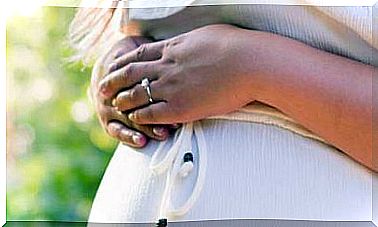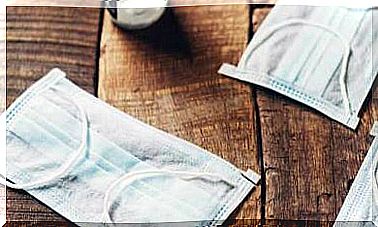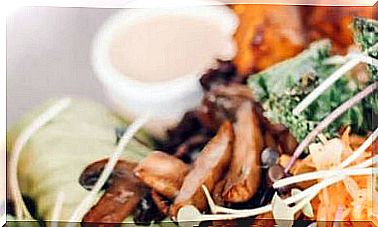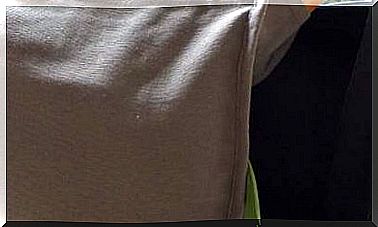10 Holistic Keys To Take Care Of The Health Of Your Ears
The discomfort in the ears invite to improve hygiene and correct some physical or emotional imbalances. In addition, they can be treated with natural therapies.

Thorough cleaning that removes wax, badly cured colds, stress, swimming in swimming pools, abuse of headphones, air travel … these are just some of the factors that can affect the ears, extremely fragile and complex organs that are rarely used. pay attention.
The result: pain, infections, hearing loss, ringing and other annoyances that remind us that they do exist.
In them , dysfunctions of other parts of the body can also manifest themselves, so natural therapies, when considering the whole person, have a lot to say.
Despite the fact that a survey places the ear as the second most valued sense among Spaniards, it turns out that it is also the least careful.
To begin with, 93% of the population uses cotton swabs to clean them, a resource discouraged by experts, since it produces the opposite effect to that desired:
” By pushing the wax towards the eardrum we make it difficult to extract and we make it more compact by mixing with the product’s filaments”, explains Nuria Oliver, physiotherapist at the Respiratory Spa of Dr. Pros.
The best hygiene, on the other hand, consists of manipulating the ears as little as possible so as not to intervene in their natural cleaning process. At most, seawater diffusers can be used to clean them externally and help undo the wax a bit, “without removing it, as it acts as a protective barrier against dust, germs, etc.”.
Do you want to prevent otitis? Wipe your nose
“Although some people are really obsessed with cleaning their ears, it would be much more effective to clean their nose, ” laments Nuria Oliver. This habit, remember, would prevent many otitis media.
Otitis media are the result of the accumulation of mucus in the area of the Eustachian tube and are more frequent in children, because being small, narrow and horizontal (it slopes over time), the mucus passes directly to the ears . In addition, it closes when there is inflammation, preventing fluid drainage.
It is also easy for recurrent otitis media to occur, since the symptom is treated with antibiotics but the area is never quite clean.
The action of blowing only manages to extract the mucus from the nostril, not the one that accumulates in the rhinopharynx.
That is why cleaning with other methods, such as sea water, is essential : “With different respiratory physiotherapy treatments (humid heat, aerosols, micronized nasal douche and pharyngeal douche) the mucus is fluidized and drained, facilitating its exit to the outside”, says Nuria Oliver. In addition, seawater nourishes and hydrates the mucous membranes, thereby stimulating their proper functioning.
They are effective techniques at any age (from birth) that prevent many recurrent otitis and relieve tinnitus caused by them.
At home, the use of an isotonic seawater nasal diffuser is recommended, “which should occupy the same place as the toothbrush in the daily cleaning routine, ” he insists.
Natural therapies for otitis
“Two thirds of otitis media heal on their own and of the rest, only a small percentage of cases will need an antibiotic “, comments Dr. Pablo Saz.
Therefore, before resorting to them, naturopathic medicine proposes solutions that, to their effectiveness, add their harmlessness:
Cleanse and calm
In addition to drainage with seawater, mucus can be expelled with postural changes that relieve pressure on the Eustachian tube.
- Internally, marshmallow (tincture or extract) is indicated, as it helps to break up thick mucus and open the Eustachian tube, and mullein (infusion or tincture), which reduces phlegm.
- Externally, you can use a solution with extract of medicinal plants (mullein, plantain and calendula) in olive oil; 2 to 3 drops are instilled twice a day, as long as the doctor rules out perforation of the eardrum and perforated otitis media and prescribes it.
For pain, 2 drops of oregano essential oil can be diluted in 10 ml of olive oil. “It is mixed well and two drops are applied to the ear. To improve the effect, it is good to warm the area with your hand, a warm cloth or a bag of cherry pits”, explains Dr. Pros.
However, it is a symptomatic treatment – he remarks – and if the otitis recurs often, an individualized treatment with homeopathy and sea water may be necessary.
Take care of the diet
It is important to keep the body well hydrated (drink water, juices, broths, infusions …) and eat a healthy diet in which fruits and vegetables abound, and limit the consumption of dairy products and refined flours, so that mucus does not progress.
Reflex massage
A good reflexology session can also calm an acute crisis : “By stimulating the adrenal glands, hormones are released that fight inflammation,” explains reflexologist Benedicte Taillard.
In otitis, a general reflexological treatment is carried out and focuses on specific reflex points of the ear (3, 4, 5 fingers of each foot and the base), the neck and the diaphragm to relax. “It’s about all of these areas working together to find balance.”
The emotional factor in ear discomfort
Sometimes the discomfort of the ear is not related to this organ itself, but to functional and inflammatory disorders that are highly related to stress.
Nurseries are a breeding ground for microbes, but there is also an emotional component to the appearance of otitis. “Children are blocked from hearing what they do not want to hear and as a defense mechanism for what they experience as the abandonment of the mother”, explains Dr. Saz, who comments that “many are cured when the child leaves the nursery” .
In this approach, homeopathy has a lot to say, as it looks for the remedy that best adapts to the child’s way of being and of experiencing the disorder. Specifically, it is very effective if the otitis has a stress component and does not get out of the vicious circle of antibiotics, which suppress the symptoms and weaken the body in the face of new aggressions.
“Homeopathy will increase the defense mechanisms themselves in full development to help maintain their balance”, comments the homeopath Juan Martín-Ballesteros. Children who cry when they are left in the nursery and somehow take refuge in the illness to stay at home with their mother, they are usually prescribed Pulsatilla .
Other effective remedies, also in adults, are: Hepar sulfur (acute suppurations); Silicea (otitis with mucus discharge from the ear); Kalium bichromicum (in long colds with thick, yellow-green mucus, from the ear); or Calcarea carbonica , among others.
Another reason for recurrent otitis in children can be the use of spatulas and forceps in childbirth, because they congest the skull and the bone squeezes the Eustachian tube. Osteopathy frees this area and facilitates its drainage function.
The role of stress: dizziness and imbalances
Sometimes the discomfort in the ear does not have to do with this organ itself but with functional and inflammatory disorders of the temporomandibular joint (TMJ) and the chewing muscles. And stress is closely related to these, especially with bruxism, which encourages the ear muscles to tighten and suffer tinnitus, pain, feeling of hearing less, vertigo …
Balance begins in the ears. The nerve centers that control balance are in the brain and obtain information about the position of our body thanks to the nerve structures of the vestibular apparatus (in the inner ear).
These are the macules and acoustic ridges, located in the semicircular canals; Their cilia move according to the position of the head, which is translated into nerve impulses that inform the brain.
” Osteopathy is useful in these cases and, in general, in any disorder that affects the mobility of the temporal bone, where the organs of hearing and balance are found,” says Jordi Cid, osteopath at the Barcelona Osteopathy Clinic .
When approaching it, in addition to paying attention to the temporomandibular joints, “it will be necessary to assess the temporal bone and the cranial mechanism in general, the balance and the degree of tension in the jaw, etc.”, he remarks.
For its part, another manual therapy, chiropractic, has also proven its effectiveness in vertigo caused by dysfunction in the cervical area. By detecting interference at this level, it is possible to re-establish correct communication in the nervous system.
And if the vertigo is due to the fact that the blood does not reach the area of the brain that controls balance well, naturopathic medicine also advises ginkgo extract (Ginkgo biloba) orally, for its vasodilator effect.
All these different ways of dealing with ear discomfort, however, have a common denominator: considering the ears as part of the organism with which they are related and in which it is possible to find the cause of the problem and, therefore, the solution.
How can tinnitus be treated?
Between 10 and 17% of the population suffers from tinnitus (ringing in the ears) at some time, that is, they perceive a noise without an external source of sound. Depending on the intensity of the symptom, the quality of life may be greatly reduced.
Although tinnitus can be caused by a wax plug, loud noise, or a middle ear infection, most of the time the cause is not found.
Linking the ear with other parts of the body whose dysfunctions may be the cause of tinnitus, rather than seeing it as an isolated part of it, is the key to the success of traditional Chinese medicine (TCM).
Through the pulse, the examination of the tongue and a personal interview, the affected organ or organs can be detected and ” a background treatment in which the tinnitus is only the manifestation of a deeper problem and that, therefore, will be effective but long, “says Dr. Daniel Mené, specialist in TCM and acupuncture.
When tinnitus is chronic, it is usually related to an imbalance of the kidney, and manifests itself with low back pain and fatigue. Frustration, anger accumulate in the liver … which translates into loud sounds and dizziness that are made worse by stress.
Another possible cause is a vacuum of the heart and lung (which produces palpitations, sadness, shortness of breath …), because the blood does not reach the ears and is unable to nourish them properly.
Treatment usually consists of acupuncture and sometimes this is complemented with herbal medicine : er long zuo ci wan for the kidney and long dan xie gan tang for the liver, for example.
Neurophysiological treatment to get used to noise
Even conventional medicine, finding no explanation, has focused its research on the neurological factors that may be involved in tinnitus, specifically on how that sound is processed, from the ear to the cerebral cortex.
“There are a series of structures of the central nervous system that make tinnitus take on a role that it should not have, ” says Dr. Teresa Heitzmann, specialist in otorhinolaryngology at the University Clinic of Navarra.
The fact of giving it an excessive significance causes an alert in the person that triggers the perception of discomfort. “The limbic system, in charge of emotions and learning, and the autonomic nervous system, which is what causes the discomfort, is then activated . And it is at these levels where you can act,” he explains.
The neurophysiological model or TRT is used, based on habituation to noise until the tinnitus stops bothering. First, the patient is recognized, the ailment is explained to him and an attempt is made to minimize it and gradually eliminate this negative emotion.
Only afterwards can sound therapy be carried out successfully : between 6 and 8 hours a day a kind of hearing aids are worn that emit a monotonous sound (like a shower) that does not mask the buzzing but is distracting. “In six months, the improvement is remarkable.”
Along these lines, a study from Wilhelms University, in Germany, has indicated that the volume of tinnitus could be reduced considerably with a pleasant and personalized musical treatment.
10 keys to taking care of your ears
Giving them attention and avoiding a bad habit helps keep their ears healthy:
- Avoid any manipulation to remove wax from the ear, including the use of sticks, which push the wax inward. The external area can be cleaned with a sea water diffuser, but the shower jet should not be applied directly to the ear.
- Dry excess water well with a towel, since humidity is the ideal breeding ground for microorganisms to proliferate.
- Keep the nostrils clean. An isotonic seawater nasal diffuser removes mucus that can affect the ear.
- Avoid the continuous use of headphones : they can cause infections and hearing loss, because although the maximum recommended volume of Mp3 players is 65 decibels, the current ones reach 90 to 130 decibels.
- Be careful with ear plugs : they should be replaced often (if they are disposable) or disinfected (if they are multipurpose).
- Beware of pollution : places with excess dust favor the formation of plugs, and tobacco smoke, otitis, especially in children and babies. Lacquers, dyes, and shampoos can be irritating.
- In the pool, wear a cap and plugs (made to measure silicone). Cleaning the nasal passages with seawater after bathing helps to remove chlorine from the nasal mucosa.
- In the sea, on the other hand, it is about the water entering and leaving without fear.
- In underwater sports you should descend and ascend slowly and avoid diving in case of respiratory diseases or allergies.
- On airplanes, it is useful to eat during the flight, swallow saliva, chew gum, hydrate well and yawn to unblock the ears and avoid barometric otitis.









